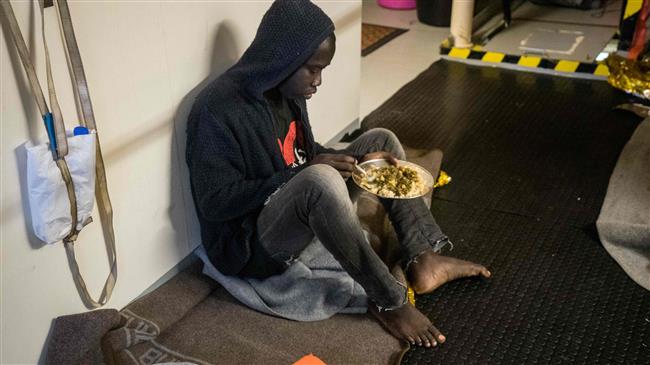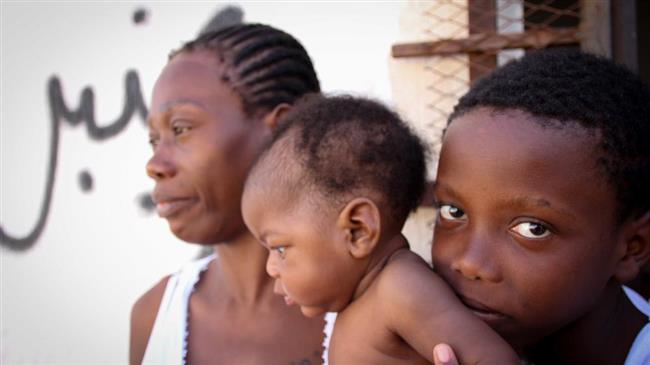Nearly half of refugee arrivals in Spain were abused: IOM
The United Nations (UN)’s migration agency says nearly half of the refugees who have arrived in Spain through the Mediterranean Sea were subjected to at least one type of abuse during their journey.
The International Organization for Migration (IOM) revealed in a new report that 48 percent of the refugees interviewed during a migration flow monitoring survey had at least one direct experience related to human trafficking, exploitation, or abuse while traveling on the western Mediterranean route to reach Spain.
The abuses included being held against one’s will, working without getting due payments, experiencing physical violence, being forced to work, being offered cash in exchange for blood, organs, or body parts, and being threatened with sexual violence.
The survey was conducted between July and October 2018 and was based on 1,341 interviews with refugees from 39 countries who arrived in Spain by sea and by land via the western Mediterranean route.
Eighty nine percent of the respondents were male and 11 percent were female, with 35 percent younger than 20 years of age and 19 percent between 21 and 23.
“The results of this survey show an alarming incidence of reported exploitation and abuse of migrants and refugees along the route. It is striking how varied their motivations and experiences are, and we do not always realize the very high levels of vulnerability in play,” said Maria Jesus Herrera, IOM chief of mission in Spain.
The IOM research study found that the main motivations for the refugees leaving their country of origin were economic reasons, violence, war, and conflict.
Refugees from Cameroon, the Gambia, and Guinea reported the highest share of at least one type of abuse, while those from Morocco, Algeria, and Mauritania had the lowest share.
“The findings reinforce our view that much more can be done to provide specialized assistance, protection and care all along the route,” Herrera said. “Ultimately, much of the abuse and suffering could be avoided by strengthening safe channels for regular migration.”
The IOM said in late February that the western Mediterranean route had emerged as the most frequented one to Europe in 2018 with 63,325 arrivals in Spain, accounting for 60 percent of all refugee arrivals through the Mediterranean.
Europe has been the destination since 2014 of an unprecedented influx of refugees fleeing conflict-ridden zones in North Africa and the Middle East, in particular Syria.
VIDEO | Beirut’s southern suburbs targeted in 'heavy' Israeli strikes
Haaretz: Over 10,000 Israelis have migrated to Canada this year
VIDEO | Press TV's news headlines
Official: Iran to respond ‘decisively’ to any threat to its nuclear program
Nearly 70 Mossad-linked terrorists killed or captured in southeast Iran
What collapse of German coalition government means
Iran, Syria emphasize need to stop Israeli atrocities in Gaza, Lebanon
Clinton whisked away amid pro-Palestine protest at Belfast university


















 This makes it easy to access the Press TV website
This makes it easy to access the Press TV website